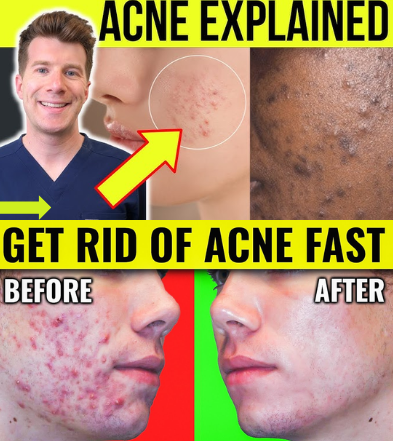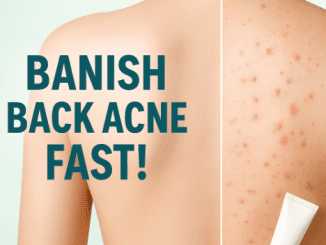
Acne is more than just an occasional breakout—it’s a skin condition that can affect confidence, comfort, and overall well-being. To tackle it effectively, you need to understand where it comes from and how to treat it the right way. Let’s dive into the common causes of acne and explore practical solutions that actually work.
Understanding What Triggers Acne
Acne happens when pores get clogged with oil, dead skin cells, or bacteria. But the story doesn’t stop there. Several factors can make acne worse, and knowing these can help you take control.
- Excess oil production: When your skin produces too much sebum, it mixes with impurities and creates blockages.
- Hormonal changes: Teenagers and adults alike face hormone fluctuations that trigger acne. Women often notice breakouts during menstrual cycles or pregnancy.
- Bacteria growth: Propionibacterium acnes, a bacteria living on the skin, multiplies inside clogged pores and causes inflammation.
- Lifestyle choices: Stress, lack of sleep, poor diet, and environmental pollution all contribute to flare-ups.
The Role of Diet in Acne
Believe it or not, what you eat can show up on your skin. High-glycemic foods—like white bread, sugary snacks, and sodas—spike blood sugar levels and lead to more oil production. Dairy products, especially milk, have also been linked to acne in some people. On the flip side, foods rich in omega-3 fatty acids, antioxidants, and vitamins can reduce inflammation and support clearer skin.
Think of your skin as a reflection of your plate. If your meals are full of greasy fast food, your face might just mirror that.
Video : Doctor explains ACNE | Causes, symptoms, treatment and more!
Hormones and Stress: The Hidden Culprits
Ever noticed how stress before an exam, big meeting, or life change seems to invite pimples? That’s because stress hormones like cortisol increase oil production. Similarly, hormonal imbalances—especially in adolescence or during menopause—make skin more prone to acne.
Managing stress through yoga, meditation, or even regular exercise can go a long way. It’s not just about calming your mind, but also about calming your skin.
Skincare Habits That Make or Break Your Skin
Your daily routine matters. Over-washing your face, using harsh scrubs, or applying products that clog pores can make acne worse. Instead, follow a gentle and consistent skincare routine:
- Cleanse twice daily with a mild, non-comedogenic cleanser.
- Moisturize, even if your skin feels oily—hydration prevents excess oil production.
- Use sunscreen daily to protect against UV damage and acne scars.
- Avoid picking or squeezing pimples, which can lead to infection and scarring.
Consistency is key. Skipping steps or constantly switching products confuses your skin.
Effective Treatment Options for Acne
When it comes to treatment, there’s no one-size-fits-all. The best approach depends on the severity of your acne and your skin type.
- Topical treatments: Over-the-counter creams with benzoyl peroxide, salicylic acid, or retinoids can unclog pores and reduce inflammation.
- Prescription medications: Dermatologists may recommend antibiotics, hormonal therapy, or stronger retinoids for persistent cases.
- Professional procedures: Chemical peels, laser therapy, and light treatments help reduce breakouts and fade scars.
- Natural remedies: Tea tree oil, aloe vera, and green tea extracts can soothe mild acne, though results vary.
Remember, patience is crucial. Treatments often take weeks before noticeable results appear.
Preventing Acne for the Long Term
Prevention is better than cure. To keep acne at bay, adopt habits that protect your skin in the long run:
- Maintain a balanced diet with plenty of fruits, vegetables, and water.
- Wash pillowcases and towels regularly to avoid bacteria buildup.
- Limit makeup or choose oil-free, non-comedogenic products.
- Stay active—exercise improves circulation and reduces stress hormones.
Your skin is like a garden: when you nurture it daily, it rewards you with a healthy glow.
Video : What causes acne and how you can prevent it
Conclusion
Acne doesn’t have to control your life. By understanding its causes—from hormones and diet to lifestyle and skincare—you can take smarter steps toward clearer skin. Treatments may take time, but with the right combination of care, patience, and consistency, you’ll notice real results. Healthy skin is a journey, and every small step counts.


